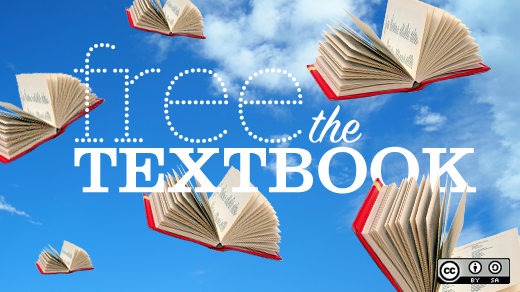I learned about David Lippman from an article on TeamOpen and realized I needed to talk to him more about his work in open education and open source. David is a professor at Pierce College and has saved students a million dollars with his shared textbooks. He also built IMathAS, a free, open source math assessment and course platform.

Tell us a bit about yourself. How did you get involved in open source and open education?
I am a math teacher by profession and training, but programming and computers have always been an active hobby of mine. Over the years I had used a lot of open source software, and contributed to a few small projects, like ASCIIMathML. About nine years ago, when online homework in math courses was starting to become more mainstream, I said to myself: "I really like this idea, but can’t justify making my students pay this extra cost." Naturally I started looking around for free and open source options. I came across WebWork, a great open source project, but realized the server setup was too complicated. That’s when I started building IMathAS, an online math homework system that could work on a commodity LAMP server. Because my goal was to make a free system, making it open source only made sense.
Later down the road, after the system had been developed and in use for a few years, it occurred to me: "Why am I having students pay $150 for a book that they only read half of, and we’re not even using for exercises anymore?" That’s when I started working on open textbooks and full open courseware. The Open Course Library project in Washington gave me and my colleagues time to work on those ideas, and through collaborations with faculty at other schools, we’ve been able to come up with some really great materials.
How has iMathAs been received?
After I built the first version, I showed it to someone from our state community college system, and he said, "Where do you see this going?" I told him I’d like to see it made available around the state, and he came up with funding to provide free hosting for anyone in the state. Largely because of that, a good number of faculty started using it. At first it was largely faculty who were very cost concerned, or who wanted something more customizable than the publisher-provided systems, but it has grown to be used by many non-technical folks now as well.
After a bunch of courses built around open textbooks were released, I wanted to be able to share those outside Washington, so I set up MyOpenMath.com to provide a free hosted option outside the state. There are a few colleges that have decided to host their own instances, but most folks find it much more manageable to use a hosted platform. Luckily we have been able to partner with a commercial company that provides support services for the software and pays the hosting bill.
Generally, it has been well received. There are some faculty who are really used to having publishers hold their hand and for whom a more hands-on self-service approach will never fly. But it’s been quite exciting to see it gain traction. We’re serving about 30,000 students a term now, between the two big installs.
What are your favorite open education tools?
I don’t know what exactly falls under an "open education tool," but I really like the UMN website and the work BC campus and Lumen have done to extend Pressbooks.
What is your favorite open source tool (not including your own)?
I use tons of them. jEdit is my primary coding text editor. I use Inkscape and GIMP for image editing and design. MathJax and jsxGraph are great open source libraries that I utilize in my code.
What do you think of the growth around your text? Did you expect for it to benefit so many others?
It is pretty cool. We were hopeful some people would get use out of it, but I don’t think we ever imagined it would get used as much as it has. It’s always fun when we get a random email from someone letting us know they’ve started using it. With OpenStax’s extension/revision out now, that’s likely to get even broader adoption.
Have you ever considered using a versioning control system like GitHub to manage your texts?
We chose to write our books in Word, since our audience is mostly community college faculty and most are more comfortable editing in Word than TeX. While we certainly could use GitHub even with Word files, it doesn’t really offer much for binaries, so we’ve just opted to keep an archive of all older versions as part of our website.
Perhaps if we release an HTML version in the future we’ll put that on GitHub.
What advice would you give to other educators to get them involved in the open education movement?
For adopters or adapters, there’s much more available now than there ever was before, and it’s easy to jump in without a huge time or effort commitment. For them, I’d recommend heading over to MyOpenMath.com, logging on as guest, and looking at what’s available to adopt with little effort. For faculty in other disciplines, visit the UMN open textbook library, OpenStax College, Lumen Learning, etc. to see what’s out there.
For people interested in creating content, I’d encourage first the common open source mantra: Release early, release often. Many educators feel like they have to wait until their material has been refined and perfected before they share it, but don’t wait! Let people know it’s draft, but share it early, and other people can help give feedback and improve it. Second, I’d recommend trying to connect with other OER-minded educators. Some of the best materials that I’ve been a part of are those that were created through the collaboration of a group of faculty, each working on the piece they’re best at.
Education
A collection of articles from educators, students, advocates, parents, and more who are implementing open source in education and working toward a more open knowledge base for everyone.







2 Comments